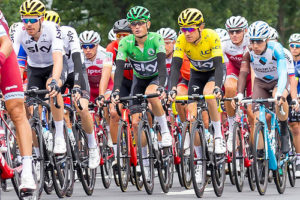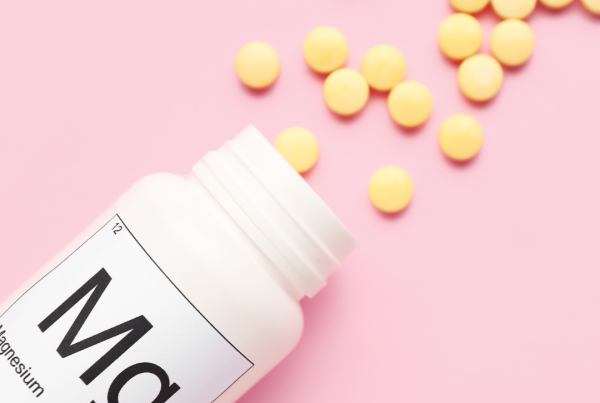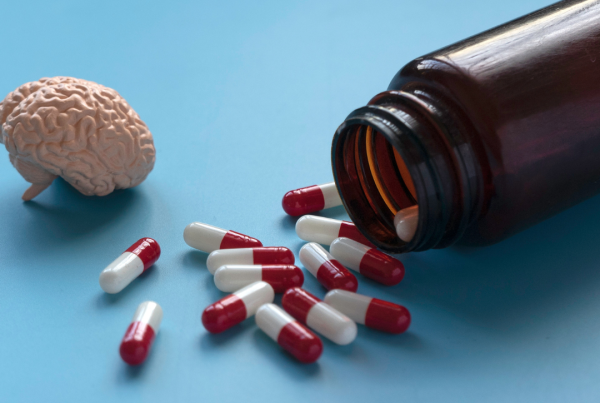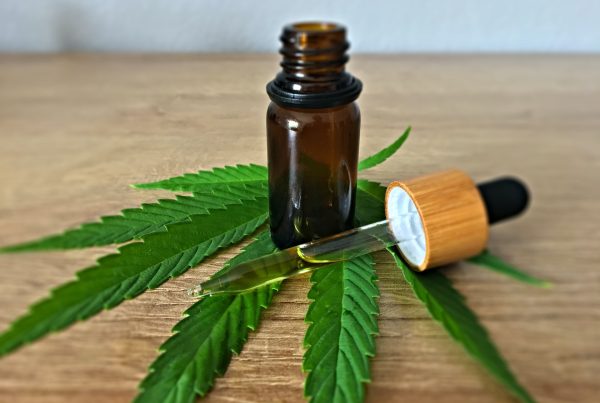A common question many patients ask me is should they work out when they’re sick. The answer is both yes and no. Read below for more info!
Your hypothalamus, part of your brain, controls your temperature regulation. Your body temperature will vary with eating, exercise, sleeping, time of day as well as time of menstrual cycle for females. Typically our body’s temperature is usually highest in the evening around 6pm and lowest early morning around 3pm.
Most people have a thermoregulatory set point which is stable; however when the body detects a virus or bacteria, that set point increases. Fever is a physiological immune response to an infection. It is when the body goes to 98-100 degrees Fahrenheit (36-37 degrees Celsius )or higher. If your temperature falls into this category you can “let it ride,” because it is not severe. Your body is trying fight off the infection and kill the bacteria or virus causing havoc on your body. If your fever is higher than 100.4F (38C), you should contact your primary care physician and consider medical treatment trying to find the underlying cause.
People who moderately exercise regularly tend to have a healthier immune system verse people that do not exercise at all. However, intensive endurance athletic training can weaken your immune system, causing fatigue and affect your adrenal glands predisposing you to get sicker than someone that does not exercise intensely due to poor rest and recovery time. (1,2)
Some athletes use the “neck check” rule if symptoms are above the neck, like runny nose, headaches, sneezing, sore throat, watery eyes, with no lymph nodes they can consider light to moderate activity. However if symptoms are below the neck with inflamed swollen Lymph nodes, including diarrhea, abdominal pain, body aches, elevated heart rate, and enlarged spleen they really should refrain from working out at all because exercising intensely during a fever can stress your body further causing dehydration, prolonged weakness, and poor recovery time from the illness. Your strength, endurance and performance are usually jeopardized when you are sick and have a fever (3). Contact sports need to be avoided in people with infectious mononucleosis as well because you do not want to affect their spleen (2,4,5).
Light exercise during a common cold is advisable because it helps your body fight the infection, because you sweat more, and helps regulate your immune system. However, intense exercise and long runs can be dangerous to your heart. (4,5,6,7)
Also be mindful, doing to a hot yoga class when you have a fever and can be contagious puts other people at risk of catching your illness especially in a humid hot room where germs spread more than a cooler environment.
Listen to your body and let your body rest when it tells you too. If you have the sniffles you can opt for a light run, however if you are really fatigued with body aches and have the flu or a GI bug, a run isn’t something you’re going to want to go on anyway!
References:
- Nieman DC. Is infection risk linked to exercise workload? Med Sci Sports Exerc. 2000;32(7 Suppl):S406–11.
- Metz JP. Curr Sports Med Rep. Vol. 2. 2003. Upper respiratory tract infections: Who plays, who sits? pp. 84–90.
3.Natalie A. Dick, DO et al. Febrile Illness in the Athlete. Sports Health. 2014 May; 6(3): 225–231.
4.Eichner ER. Infection, immunity and exercise: What to tell patients? Phys Sportsmed. 1993;21:125–35.
5.Primos WA., Jr Sports and exercise during acute illness: Recommending the right course for patients. www.physsportsmed.com/issues/1996/01_96/primos.htm
6.Weidner TG et al. The effect of exercise training on the severity and duration of a viral upper respiratory illness. Med Sci Sports Exerc. 1998 Nov;30(11):1578-83.
7.Stricker PR. Acute illnesses. Sullivan JA, Anderson SJ, editors. Care of the Young Athlete. American Academy of Orthopedic Surgeons and American Academy of Pediatrics. 2000:213–8.



